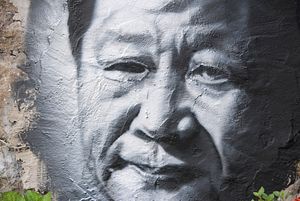Recently, a new debate has emerged within China: a debate about whether the country should assume global leadership. This debate has intensified since President Xi Jinping ‘s pro-globalization speech at Davos earlier this year, raising many important questions for China and the world.
In a sense, this is a long overdue debate. As I’ve written before, the world in many ways needs China’s leadership, especially in areas like global development. Now with the Trump administration in charge of U.S. foreign policy, a new window of opportunity has opened up in China’s quest for global leadership.
It should be clear that global leadership comes with both advantages and disadvantages, as evidenced by the United States’ experience in recent decades. One main reason why Donald Trump won the presidential election in 2016 was the frustration and fatigue voters felt about the United States’ deep involvement in global affairs. Ideally, a major power should strike a delicate balance between its global obligations and domestic duties. For a developing country like China, many pressing domestic issues still pose major challenges for its leadership, hence the talk of global leadership might seem premature and ill-timed.
On the other hand, a stable global order cannot function well without a leader or a hegemon. According to Harvard professor Joseph Nye, the world should be aware of a “Kindleberger trap,” or how a lack of global leadership can lead to disastrous global consequences. The trap is most dangerous when a leading power is no longer able to lead and a rising power is still unwilling to lead, a situation that very much resembles the one today in U.S.-China relations.
Under the leadership of Donald Trump, the United States is now seeking ways to reduce its global burdens, thus failing to provide global public goods in areas like climate change, poverty reduction, and trade. In the meantime, worried by its own domestic problems, China is unwilling to take on more international responsibilities, thus furthering the dire situation of global public goods. In a worst-case scenario, it is not impossible that the world might experience the dark decade of the 1930s again.
How can we prevent this from happening? Of course, the United States, as the only extant superpower, should not abandon its international responsibilities by adopting an “America First” approach to international affairs. China, however, has its own share of international responsibilities to bear. It should let go of the “victim” mentality and actively get involved in global affairs through peaceful and constructive means.
Beijing should also adopt an assurance strategy toward its Asian neighbors when it comes to disputes in East China Sea and South China Sea. Doing so would further pull those countries now feeling abandoned by the U.S. into the orbit of China. In areas of regional and global importance, China should work together with the U.S. to come up with creative and constructive solutions to issue like North Korea.
All this will not be easy, of course. There are strong voices against more active involvement in global affairs within China, fearing that it might be another Western conspiracy to trap China into messy regional troubles. Such a mentality is not healthy, as it underestimates China’s own power and neglects global obligations.
Moreover, China’s own domestic governance model needs to be improved in many areas like transparency and fairness. But all these concerns and worries should not stop China from becoming more active in global affairs, particularly as China has been a major beneficiary of global order for the last 40 years or so. An open, stable, and institutions-based global order is in China’s national interests and China should be ready to defend it when the U.S. retreats.

































